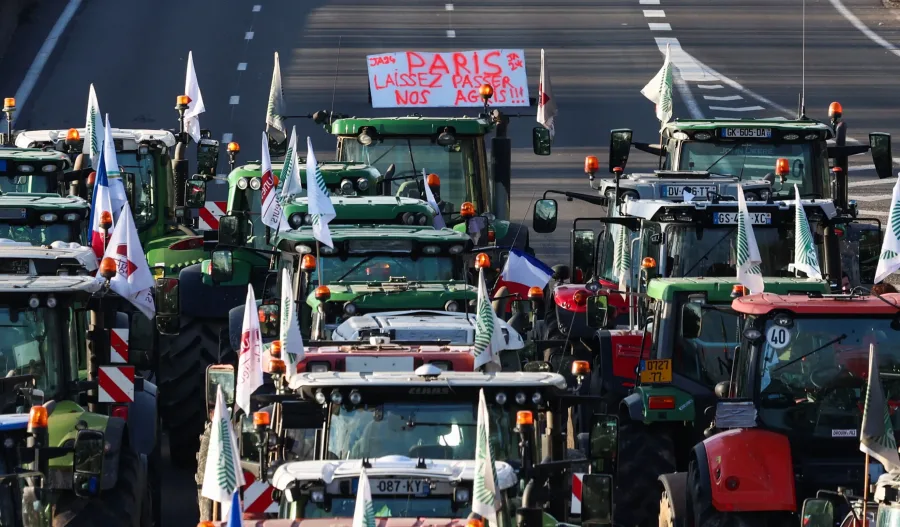China aims to curb dairy and beef production due to falling meat prices. Will these steps stabilize the market and aid struggling farmers?

China’s meat prices have plunged as the economy has slowed, forcing decisive government intervention. As the world’s top meat eater, the nation is seeing significant price declines in pig, beef, dairy, and poultry, putting a financial burden on farmers. To stabilize the market and help farmers, authorities are already reducing dairy and meat output levels. Wang Lejun, the agricultural ministry’s Chief Animal Husbandry Officer, said that beef and dairy cow producers are suffering significant losses as a result of price drops of 12.1% and 12.5%, respectively, in the first half of the year. Beyond market dynamics, this problem influences food security and rural lives. By resolving the supply-demand mismatch, the government hopes to safeguard agriculture and maintain the long-term viability of the meat and dairy sectors.
The Economic Underpinnings of Meat Price Declines: China’s Experience
The economic environment has a significant influence on China’s declining meat costs. A slowing economy, characterized by lower growth rates, directly impacts consumer spending patterns. As people restrict their finances, meat expenditure, frequently seen as a luxury, falls. Higher living expenses and economic uncertainty drive customers to seek cheaper food, further depressing prices.
This slowness impacts both manufacturing costs and supply networks. Farmers confront increasing operating costs but lower product market prices, resulting in financial distress. This has prompted demands for government intervention to stabilize the market. As a result, the government’s involvement in reducing output attempts to help farmers and rebalance the supply-demand equation, promoting a sustainable economic environment.
Challenging Landscape: China’s Livestock Industry Grapples with Supply-Demand Imbalance
China’s cattle sector is facing challenging conditions. In the first half of the year, beef prices plummeted 12.1%, while raw milk prices declined 12.5%, posing a considerable challenge for farmers: oversupply and reduced demand cause losses for beef and dairy cattle ranchers.
Overall, pig, beef, mutton, and poultry output rose by 0.6% yearly. Egg and milk output increased by 2.7% and 3.4%, respectively, contributing to a market oversupply and accelerated price decreases.
This circumstance exhibits a supply and demand mismatch, in which rising output and decreased consumption force prices down, putting the whole industry in danger.
Strategic Measures to Stabilize Dairy and Beef Production: China’s Plan to Curb Overproduction
China intends to reduce the overproduction of dairy and beef and stabilize prices. Herd structure optimization is a critical step in balancing output with market demand. This entails gradually removing elderly and low-yielding cows, increasing efficiency, and lowering expenses.
The government also intends to better connect output with market demands by improving breeding methods and supporting more market-sensitive approaches. These initiatives are designed to relieve financial constraints on farmers and build a more resilient cattle business.
A Bleak Financial Horizon: The Struggle of Beef and Dairy Producers Amidst Plummeting Prices
The financial effect on livestock and dairy farmers has been significant. In the first half of the year, beef and raw milk prices declined by 12.1% and 12.5%, respectively. This price decline has resulted in enormous losses for producers with high expenses. Producers are improving herd structures, removing elderly and low-yielding cows to reduce overproduction and better meet market demand. Government measures have also been introduced to minimize breeding numbers, notably in March and June. While these steps have helped to stabilize hog prices, the beef and dairy sectors continue to suffer. Producers must strike a compromise between cutting production and sustaining operations, as prices are projected to stay low in the second half of the year, necessitating continued adaptation and resilience.
Historical Precedents in Government Interventions: Safeguarding China’s Agricultural Markets
Government interventions to stabilize agricultural markets are not uncommon in China. Recently, the Chinese government took many initiatives to rectify market imbalances. Beijing implemented measures in March to curb the breeding sow population after pig farms’ fast development, which resulted in an excess of pork and financial losses for farmers.
In June, new criteria for controlling beef cow output were implemented. These strategies attempt to reduce excess supply and stabilize the market, allowing prices to recover. Such initiatives demonstrate the government’s proactive approach to controlling agricultural productivity and ensuring the economic well-being of the livestock industry.
Forecasting the Market: Persistent Low Prices Amidst Overproduction and Economic Slowdown
Looking forward to the year’s second half, market estimates suggest that beef and dairy prices will remain low. Despite attempts to reduce overproduction, supply exceeds demand, putting downward pressure on pricing—this situation for meat results from structural oversupply despite farmers’ attempts to alter herd levels. Dairy prices are projected to remain low owing to increased output and moderate demand. Analysts believe these low prices will provide little relief to manufacturers, who are already struggling with tight margins and financial losses. The more significant economic situation, characterized by a weakening economy and cautious consumer spending, complicates the forecast, implying that price stability may remain challenging.
Significant Decline in Meat Imports Highlights Domestic and Economic Shifts
China’s beef imports in the first half of 2024 fell 13.4% from the previous year. This decrease is particularly noticeable in pork and poultry imports, which have taken the most significant blow. The drop in meat imports is a dramatic reaction to local production trends and shifting consumer habits amid a faltering economy. The decreased reliance on imported meat relieves some of the burden on domestic farmers dealing with low pricing and overstock. However, it highlights deeper economic issues that may have long-term effects on demand and market stability.
The Bottom Line
China is halting dairy and meat production to synchronize with market needs and stabilize the agriculture industry. The drop in pig, beef, dairy, and poultry prices is due to an economic downturn and decreased consumer expenditure. Regulations on sow breeding and control over meat and dairy cow output are among the measures to ease the financial burden on livestock producers. When demand rebounds, these policies may constrain market supply and drive prices upward. China’s strategy emphasizes the necessity of balanced market intervention to ensure stability and food security. Global economic dynamics, climate change, and consumer behavior influence agriculture policy. Policymakers, industry stakeholders, and consumers must work together to secure the long-term development of China’s—and the global—meat sector.
Key Takeaways:
- China plans to implement measures to curb dairy and beef production to prevent further price declines, adding to existing regulations on pork producers.
- Shoppers are reducing meat purchases due to a slowing economy, leading to falling prices for pork, beef, dairy, and poultry.
- The livestock industry has seen increased production, contributing to low market prices; pork, beef, mutton, poultry, egg, and milk production all rose in the first half of the year.
- New regulations aim to optimize herd structures by eliminating older, low-yielding cows to better align production with market demand.
- The Chinese government previously issued regulations to reduce the sow population due to an oversupply of pork, which helped stabilize pork prices.
- Despite efforts to control production, beef and dairy prices are expected to remain low in the second half of the year.
- China’s meat imports dropped significantly in the first half of 2024, reflecting shifts in domestic production and economic factors.
Summary:
China’s slowing economy has led to a significant decline in meat prices, affecting top meat eaters and putting a financial burden on farmers. The government is reducing dairy and meat output levels to stabilize the market, but beef and dairy cow producers are suffering significant losses. This affects food security and rural lives, leading to demands for government intervention to stabilize the market. The economic environment directly impacts consumer spending patterns, leading to a decrease in meat expenditure and higher living expenses. This slowness impacts manufacturing costs and supply networks, causing farmers to face increasing operating costs but lower product market prices, resulting in financial distress. China’s cattle sector is facing challenging conditions, with beef prices plummeting by 12.1% and raw milk prices declining by 12.5% in the first half of the year. Market estimates suggest that beef and dairy prices will remain low in the second half of 2024, as supply exceeds demand, putting downward pressure on pricing.
Learn more:
- Navigating the Waves: Dairy Producers Defy Challenges to Keep Barns Full Amid Soaring Milk Prices and Adverse Conditions
- Big Milk Checks and Low Feed Costs: A Profitable Summer for Dairy Producers
- Main Reasons Behind the Significant Decrease in Cow Culls: The Impact of Beef-on-Dairy Trends and Low Replacements













